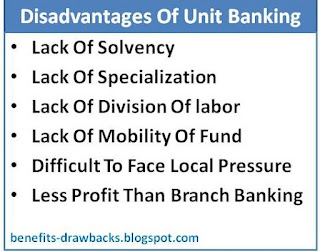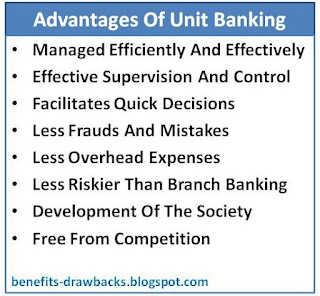Major limitations or disadvantages of branch banking system can be highlighted as follows:
1. Chance Of Mismanagement
Because of large size, various branches, large number of employees and large scale operation there may be a lack of strict supervision, effective communication and proper controlling in branch banking system. So, there is a high chance of mismanagement in this type of banking.
2. Long Decision Making Process
In branch banking system, branch managers have very limited power. They have to consult with the head office to make any decision. So, decision making process is very long as compared to unit banking.
3. No Prompt Action
Prompt action cannot be taken because of delayed decision.
Also Read:
Branch banking requires high operating and overhead expenses because of large size, different branches and large number of employees.
5. Lack Of Initiative
Branches have limited powers and they cannot take decisions independently without consulting the head office. So, this type of banking system may lack initiative.














